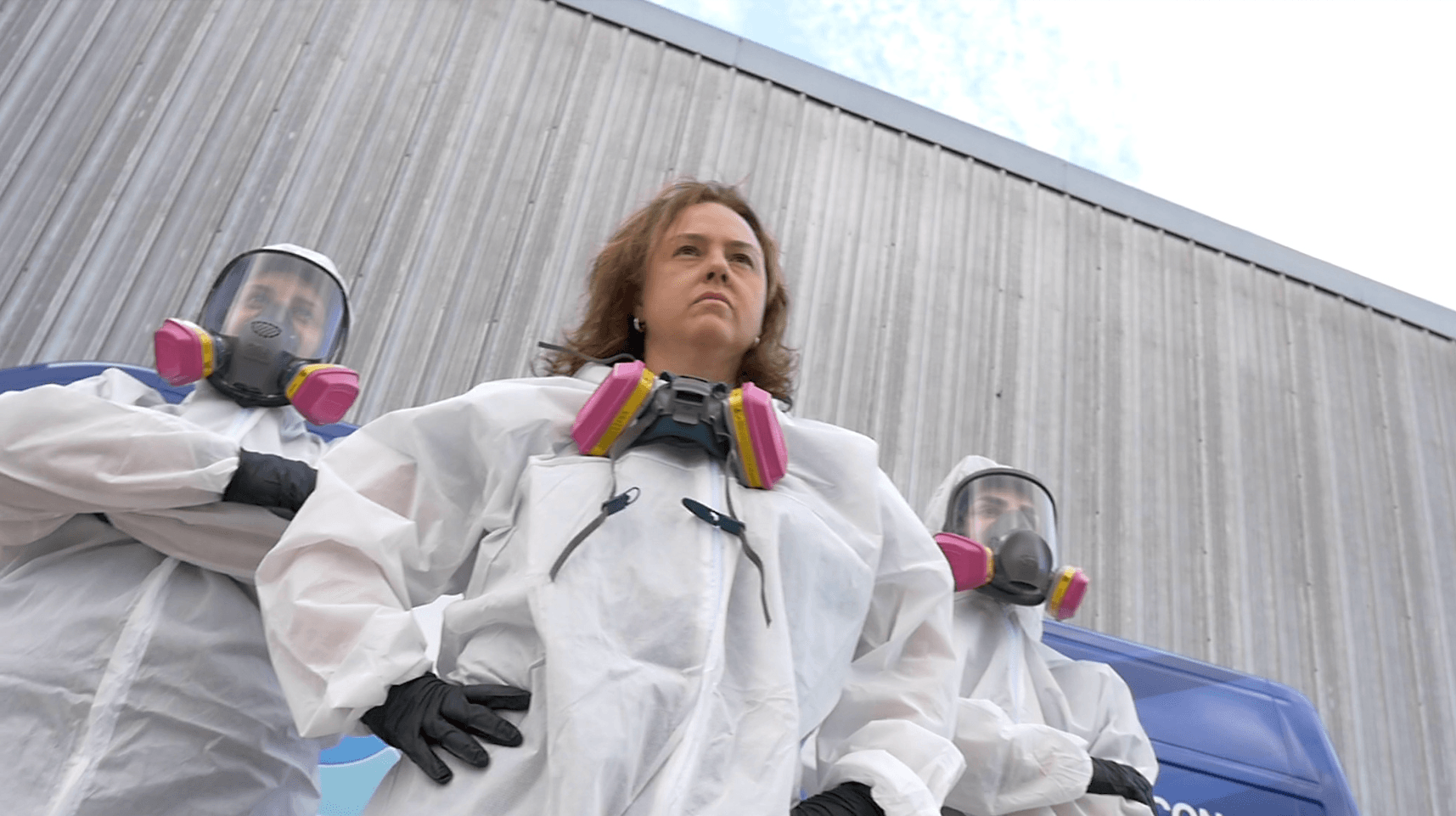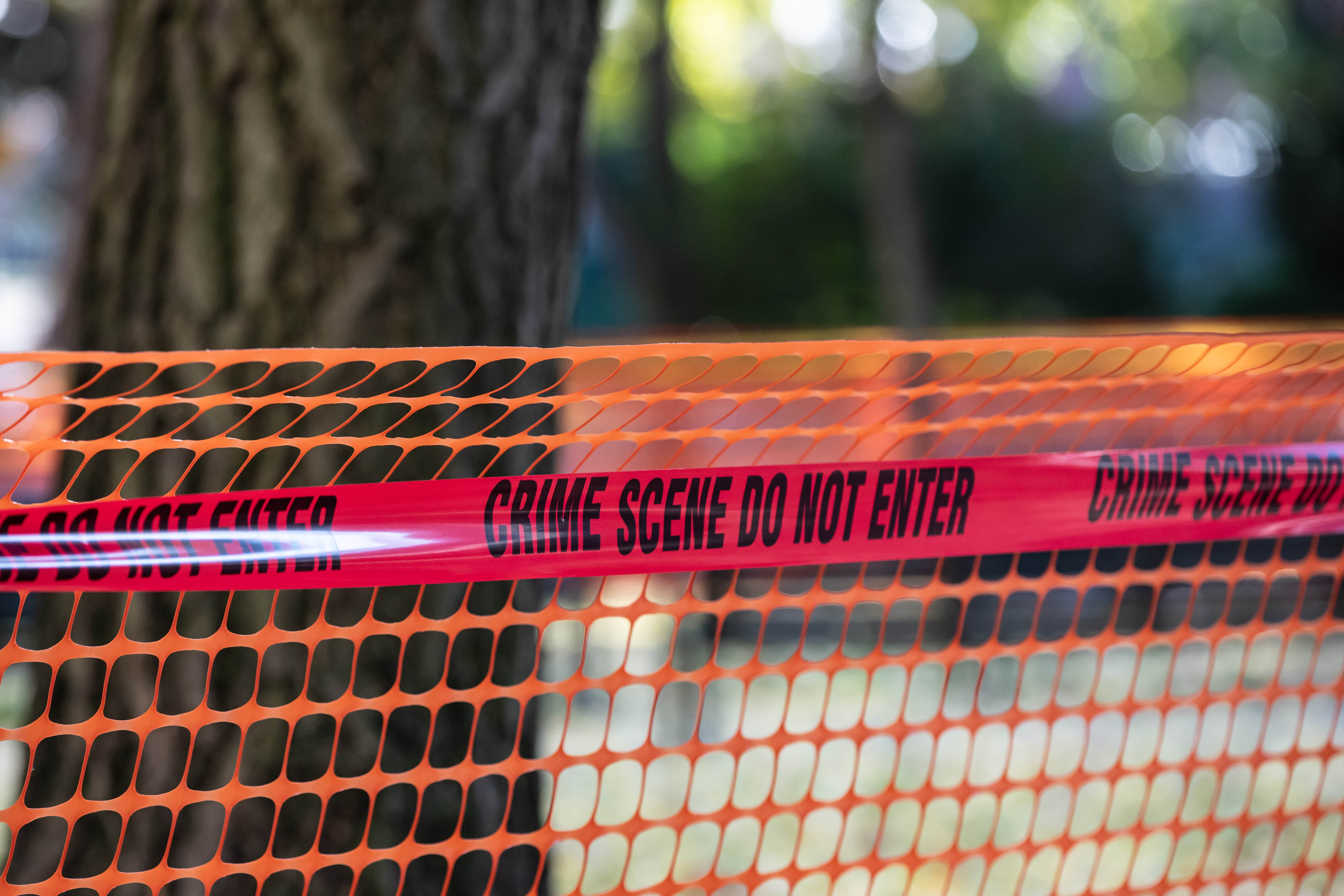If you have no desire to sit at a desk and prefer the spontaneity of a constantly changing job, then crime scene cleaning may be for you. Every crime scene is unique, and you will experience everything from homicides, industrial accidents, decomposing bodies, suicides, hoarders, trauma scenes, and more.
After investigating authorities release the crime scene, a cleanup of bodily fluids and other biohazards is necessary. In the past, handling this was the responsibility of the victims family members. It was not until the 1990s that crime scene cleaning companies came into existence. So what is the job like when you perform crime scene cleaning? What type of training do you need and what is the salary? Is the job monotonous or interesting? Keep reading to get all the answers you need about a career that sets you apart from the average pencil pusher.
The Realities of Cleaning up Crime Scenes
The first thing that comes to mind when you hear crime scene cleanup is the CSI shows with police tape and bizarre crime scenes happening on a daily basis. This isnt the reality of this job. Here is what you can expect from this unique position.
It Isnt All Crime Scenes
The largest number of crime scene cleanups are the result of an unattended natural death or a suicide, not major crime scenes. That is why the majority of companies that handle cleanups also cover other cleanup areas. This includes homes of hoarders, meth labs, and mold removal services.
Many Ex-Military, Ex-Law Enforcement, and Paramedics Move to This Career
Serving in the military, law enforcement, and paramedic positions gives workers exposure to traumatic scenes, including death. Those with experience in those careers learn to compartmentalize their brain. This allows them to stay focused on the task at hand, not the traumatic scene before them. That is a valuable asset when performing crime scene cleanup.
Pig Blood for Training

During your training, you may need to perform tasks in a staged crime scene. These training scenarios often involve organic and non-organic fake blood. This includes stage blood and pig blood.
The purpose of this is to create a scene that is as close to reality as possible. Allowing a trainee to perform the job in a safe setting using appropriate protective gear, and then go through the process of decontamination prepares them for the real cleanup world.
Death Is More Than Just the Body
When you are cleaning up the scene from a dead body, how extensive the process is will depend on the level of decomposition or level of trauma.
There will be strong odors. All property in the room or home may have absorbed the smell. You must peel off all the layers of contamination to locate all hazards. In areas where a body has been decomposing for a period of time, body fluids may leak out and go through the floor and into the areas below. When cleaning a scene you must find every single spot or splatter of blood and body fluids.
Cleaning up brain matter is challenging because it hardens like cement. This requires an enzyme cleaner that softens the brain tissue, allowing removal. For tissue or fluids that seep into cracks, it may be necessary to take apart furniture or remove flooring.
Even Masks Dont Always Hide the Smell

By wearing a respirator, crime scene cleaners reduce the smell of death. Any twist of their head that breaks the masks seal allows the smell to seep in. To remove the scent from the building, technicians use ozone machines, hydroxyl generators, air scrubbers, and HEPA filters. This deodorizes the home.
The Job Is Part-Time Grief Support
Family members of the deceased are grieving. They may need to vent, telling the story in detail about what happened. As a crime scene cleanup professional you need to be compassionate and understanding. This is not the type of job you can just take home and discuss with family around the dinner table. The emotional stress leaves crime scene cleanup crews sometimes seeking counseling for themselves.
Emotional Satisfaction
The fact that you are helping a family work through the most difficult time in their lives provides emotional satisfaction. Although dealing with horrible smells, gore, and grief, it is rewarding for the crew to know they provide a necessary service.
Requirements to Perform Crime Scene Cleaner Jobs
If you are considering a career in crime scene cleanup, there are several things you need to consider.
When you become a professional crime scene cleaner, you receive training, certifications, and licensing. Your training teaches proper use of personal protective equipment (PPE), handling biohazardous materials, and more. You will work in conditions that are not favorable. You must perform your duties wherever a crime occurs, putting in long hours of manual labor to complete a cleanup. To be successful, you need to focus on the service you are performing in areas where disturbing crimes took place.
To conduct a crime scene cleanup you must pay close attention to detail. This ensures all procedures and protocols are followed. The job requires the removal of all dangers, plus cleaning and disinfecting the area. Those who select this as a career find satisfaction in knowing they help people at a dark point in their lives.
Crime Scene Cleaner Salary
The job of a crime scene cleaner is not shown as an occupation by the U.S. Bureau of Labor Statistics. The job meets the qualifications for hazardous materials removal. The average median income in May 2019 was $43,900 per year ($21.10 per hour). Because there will always be crime scenes and other hazardous areas requiring cleanup, the job security of this position is solid.
How to Train For Crime Scene Cleaning
Crime scenes and accidents often include contamination by blood and other body fluids. These may contain bacteria or viruses that cause disease, including malaria, syphilis, hepatitis B and C, HIV, and brucellosis. Those with professional training follow specific steps to clean, disinfect, and sanitize the area.
You can train for cleaning crime scenes online at Spaulding Decon. Using step-by-step video training guides you will learn how to handle everything from hoarders homes to biohazard remediation and drug lab cleanup.
There are several learning packages available. To help you get started you may apply for monthly financing. Pick the plan that fits your needs:
- Bio Basics9 lessons for $20
- Biohazard Cleanup48 lessons for $550
- Business Training37 lessons for $2,500
- Hoarding Cleanup29 lessons for $350
- Meth Testing and Cleanup63 lessons for $1,200
- All Courses BundleIncludes Hoarding Cleanup, Business Training, Biohazard Cleanup, and Meth Testing and Cleanup$4,250
Crime Scene Cleanup Made Easy
Family members may try to clean up a crime scene or suicide location on their own. This is not safe. Following a persons death, there may be bloodborne pathogens, bodily fluids, and other hazards.
Clean-up is a labor-intensive, detailed process to undertake. Spaulding Decon professionals provide cleanup services throughout the United States. Our crew members remove contaminates and eliminate the risk of exposure to hazards. The cleanup process is simple. Just give us a call (866) 726-2316 24 hours a day to begin the process. We will provide you with a rough estimate of cleanup costs over the phone. We then dispatch our crew to the crime scene and begin the cleanup.





